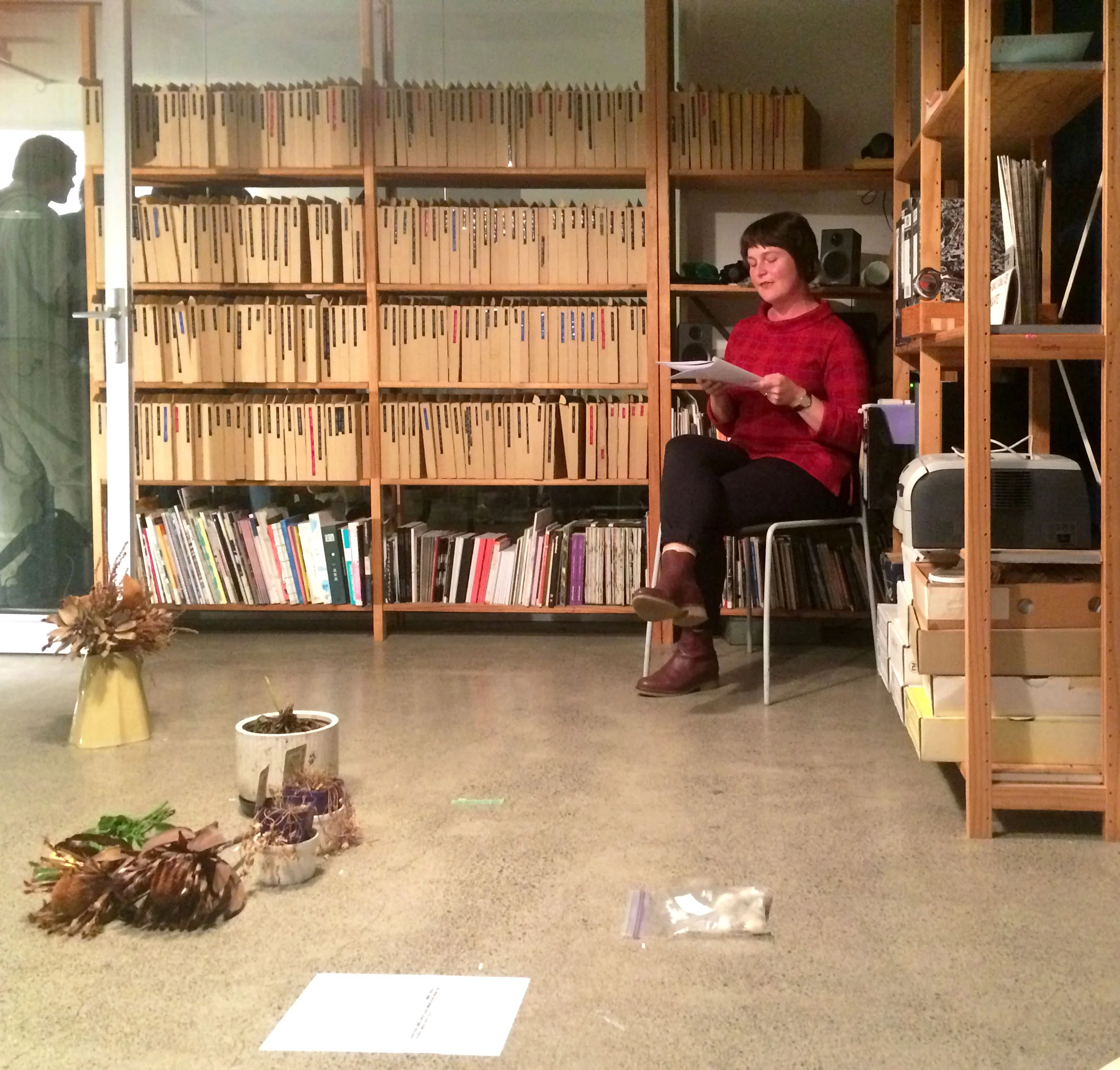Gabrielle Amodeo is an artist and writer living and working in Te Whanganui-a-Tara Wellington, New Zealand. She is the 2015 recipient of the Parkin Prize, and has shown at several of New Zealand’s premier public galleries, including Artspace (Auckland); Dunedin Public Art Gallery (Dunedin); Papakura Art Gallery (Auckland); The Dowse Art Museum (Wellington); and Te Uru Waitakere Contemporary Gallery (Auckland). During 2016, Amodeo completed the Late Winter Intensive Residency at The Banff Centre, Canada.
Her practice was enthusiastically reviewed in the cover feature of Art New Zealand’s 2014/15 summer edition, along with two others, as artists to watch. Amodeo completed her Masters of Fine Arts in 2007, achieving First Class Honours and coming top of her cohort. Since graduating, she has shown throughout New Zealand and overseas, her work being frequently and warmly reviewed.
Amodeo is a PhD candidate in Fine Arts at Massey University’s College of Creative Arts Toi Rauwharangi.
The thinking that underlies my practice
During an interview on Brian Crump’s show Nights, on Radio New Zealand, I heard that karaoke translated to ‘empty orchestra’. I thought the phrase was beautiful; the starkness of ‘empty’ forms a demanding opposition to the rich voluptuousness of ‘orchestra’. To me the phrase speaks eloquently about processes of information lost/information gained; about the absent but remembered lyrics imperfectly filled by the performer, and the peculiar, almost estranged, relationship between the fixed recording and the temporal iteration of the moment.
In my practice, I’m interested in why things are familiar and how the familiar can be construed differently. Working on the basis of form following idea, I use multiple mediums. Modelled on and modified from familiar sources and objects, the artwork enables a proliferation of meaning to gather around the source-object, creating an uncertainty and instability of sense. Each work follows a different methodology, logic or form, using some manner of disruption to set the meaning of the source-object at play.
I see my work as being like listening to karaoke at that moment the relationship between song and iteration breaks down. It is a personal, altered translation of something familiar, where meaning becomes twisted in action and enunciation, causing an irruption that unravels the known.
Gabrielle Amodeo
